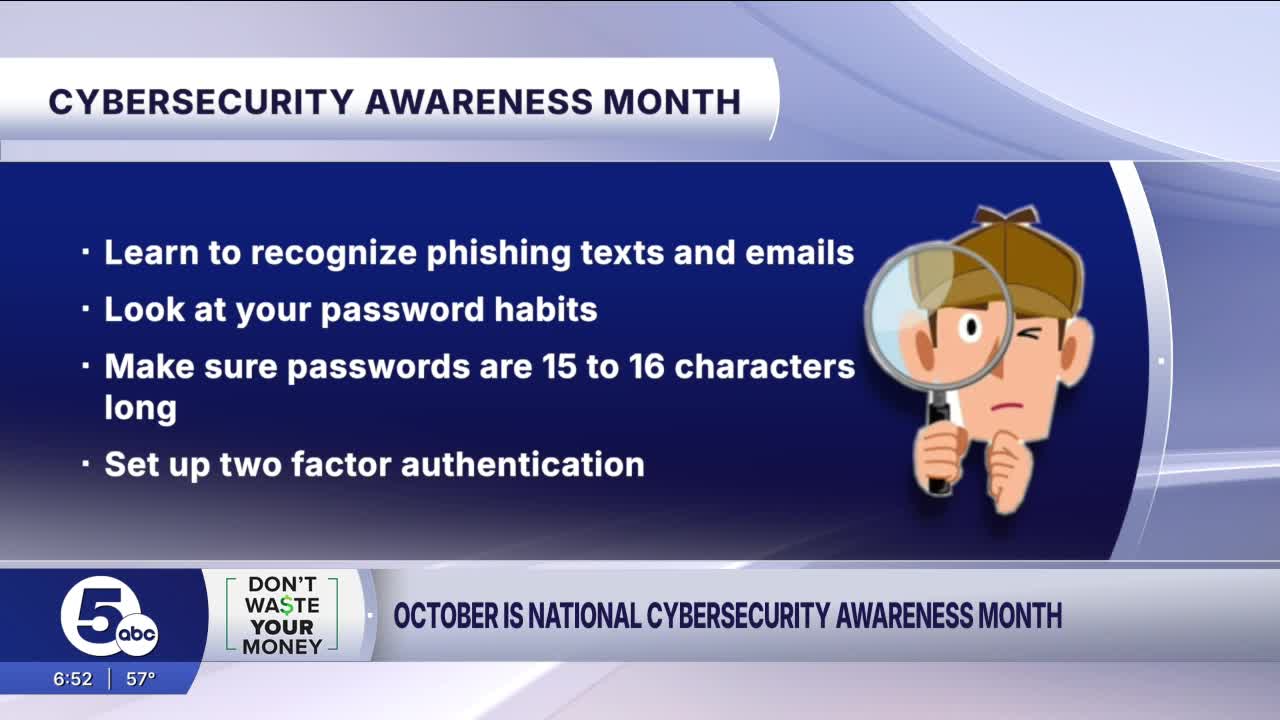CLEVELAND — As we turn the calendar to a fresh new month, I want to encourage you to look at your online activity and how it can be putting your personal information and money at risk.
October is National Cybersecurity Awareness Month.
I spoke with Lisa Plaggemier with the National Cybersecurity Alliance, the non-profit that created the awareness campaign more than two decades ago.
She told me there are a few basics we need to keep in mind so we're not scammed or defrauded.
First, know how to recognize phishing texts and emails and watch out for them.
Look at your password habits. Lisa said we have some bad ones, like using the same one for everything. Make sure they are at least 15 to 16 characters in length and use a password manager to help you keep track.
And this suggestion is very important – set up two-factor authentication.
"That means that if you are using a password that's easy to crack, or a password that is already for sale on the dark web, or a bad guy has somewhere they can't get into your account without that second factor," said Plaggemier.
She said it is important that we run updates on our devices when we get them to fix security bugs.
And when it comes to being scammed, remember the reality is it is not about intellect, but about our emotions.
Can someone successfully manipulate you to fall for their scheme?
Based on the number of local scam victims I've highlighted over the years, sadly, the answer is yes, they can.
And staying with the topic of emotions for a second, I learned they play a big role in why so many consumers are still so vulnerable when it comes to cybersecurity.
Research shows people find security intimidating, confusing, and even scary based on what they see in the news about data breaches, scams and cyberattacks.
So, what is the National Cybersecurity Alliance doing to change that narrative?
I learned its mission is to drain the fear and tech speak, even using comedy in its campaigns and messaging.
The non-profit just created "Then and Now," a workbook for seniors, because that demographic likes printed materials.
For young adults, there's "Kubikle," an online comedic series like "The Office."
The characters are bad actors, and you watch them do their work.
It had 18 million views in its first season, and season two will be released soon.
"If I can't get and hold your attention, I never get the chance to deliver the security advice and to try to motivate you to do some of these things so it's really, really important we put out materials that are visually attractive and easy to understand and that's really our bread and butter," said Plaggemier.
For more information and resources as we observe National Cybersecurity Awareness Month, check out www.staysafeonline.org.




